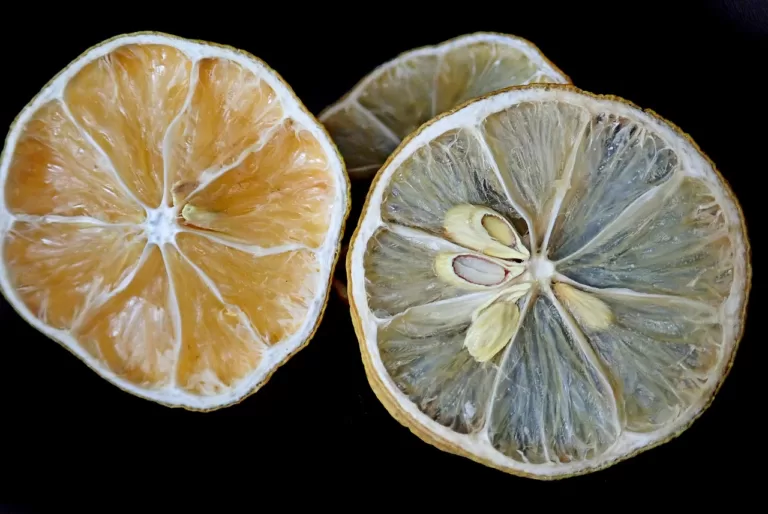Dehydrating food offers many advantages that can change your relationship with food. Also known as drying, dehydration may seem like a simple concept, but its implications go far beyond the mere preservation of fruits, vegetables, and herbs. It’s a technique that allows us to harness nature’s bounty, extend the shelf life of perishable items, and unlock a world of culinary possibilities. From its ability to concentrate flavors and preserve vital nutrients to its role in reducing food waste and expanding your culinary repertoire, you’ll discover 6 incredible benefits of dehydrating food at home.

1. Concentrated Flavors and Enhanced Taste
One of the remarkable benefits of dehydrating food is the intensified taste it brings to the table. Through the process of removing moisture, dehydration concentrates the natural flavors present in fruits, vegetables, and herbs, elevating their taste profiles to new heights. Imagine biting into a sun-dried tomato bursting with robust, tangy flavors or savoring the intensified sweetness of dried mangoes.
Dehydrated ingredients add depth and complexity to dishes, making them a secret weapon in the kitchen. Whether it’s adding a punch of flavor to soups, stews, or salads or creating unique spice blends and rubs, dehydrated foods unlock a world of culinary possibilities that will tantalize your taste buds and leave a lasting impression on your palate.
2. Preservation of Nutrients
While preserving the flavors of food is important, preserving the essential nutrients within them is equally crucial.
Dehydration stands out as a preservation method that effectively retains vital nutrients found in fruits, vegetables, and herbs. Unlike other techniques such as boiling or canning, which can lead to nutrient loss due to heat exposure or leaching into the preserving liquid, dehydration gently removes moisture while preserving the inherent nutritional value of the food.
Dehydrated fruits and vegetables can retain high levels of vitamins, minerals, and antioxidants, offering a concentrated dose of health benefits in each bite. From vitamin C in dehydrated citrus fruits to lycopene in sun-dried tomatoes, dehydrated foods provide a nutritious and convenient way to incorporate essential nutrients into your diet.
Dehydrating food makes you enjoy the convenience of long-lasting, nutrient-dense ingredients without compromising on their healthful properties.
3. Extended Shelf Life and Reduced Food Waste
One of the most practical benefits of dehydrating food is its ability to extend the shelf life of perishable items. By removing moisture, dehydrated foods become resistant to spoilage and bacterial growth, allowing them to be stored for much longer periods compared to fresh produce.
This means you can enjoy seasonal fruits and vegetables year-round, even when they are out of season. Additionally, dehydrating food offers a valuable solution to combat food waste. Instead of letting excess produce go to waste, you can transform them into dehydrated snacks, powders, or pantry staples that can be stored for months or even years.

4. Economic Benefits
Purchasing produce in bulk during peak seasons and dehydrating it for future use allows you to take advantage of lower prices and ensure a steady supply of ingredients throughout the year.
This can be particularly beneficial for those who enjoy cooking and baking with fresh fruits, vegetables, and herbs that may be expensive or scarce during certain times of the year. Furthermore, incorporating dehydrated foods into your meal planning can help stretch your budget.
They serve as versatile, shelf-stable ingredients that can be used in a wide range of recipes, from soups and sauces to trail mixes and baked goods. By reducing reliance on store-bought alternatives and making your own dehydrated pantry staples, you can save money while enjoying wholesome, homemade ingredients at a fraction of the cost.
Embracing food dehydration not only nourishes your body but also your wallet.
5. Environmental Advantages
In addition to its culinary and economic benefits, dehydrating food offers significant advantages for the environment. Compared to other preservation methods like canning or freezing, dehydration consumes much less energy.
The process typically involves low heat and airflow, requiring minimal electricity compared to the energy-intensive freezing or canning processes.
By reducing energy consumption, dehydrating food helps to lower carbon emissions and mitigate the impact on the environment. Furthermore, dehydrated foods often come in minimal or no packaging, reducing reliance on single-use plastics and promoting sustainable consumption practices.
Additionally, dehydrating allows you to make use of surplus produce that may otherwise go to waste, thereby reducing food waste and its associated environmental footprint.
By embracing food dehydration, you not only nourish yourself with wholesome, preserved ingredients but also contribute to a more sustainable and eco-conscious lifestyle.
6. Culinary Versatility and Exploration
Dehydrated foods open up a world of culinary versatility and exploration, allowing you to expand your culinary horizons and create unique, flavorful dishes.
Dehydrated fruits, vegetables, and herbs can be rehydrated and incorporated into various recipes, adding depth, texture, and a burst of concentrated flavors. From using dehydrated mushrooms to elevate the umami factor in a risotto to sprinkling dehydrated herbs on top of roasted vegetables for an added aromatic touch, the possibilities are endless.
Moreover, dehydrated ingredients lend themselves well to homemade snacks, trail mixes, and desserts, offering a healthier alternative to processed options. The process of dehydrating also encourages culinary experimentation and creativity, as you can experiment with different flavors, combinations, and techniques to achieve unique results.
Practical Tips for Dehydrating Food at Home
If you’re ready to start your own dehydrating adventures, it’s essential to arm yourself with practical tips and techniques to ensure successful results.
Firstly, invest in a reliable food dehydrator or use alternative methods like air drying or an oven set at low temperatures. It’s crucial to prepare the fruits, vegetables, or herbs properly by washing, peeling, and slicing them into uniform pieces for even drying.
Different foods require varying dehydration times and temperature settings, so familiarize yourself with specific guidelines for each item. Ensure proper air circulation during the drying process and regularly monitor the food’s progress.
Once fully dehydrated, store the items in airtight containers in a cool, dark place to maintain their quality and longevity.
Lastly, be adventurous and explore different food combinations, flavors, and techniques to find your own dehydrating style. With these practical tips, you’ll be well on your way to mastering the art of food dehydration and enjoying the countless benefits it brings to your culinary endeavors.
Conclusion
The benefits of dehydrating food are abundant and far-reaching. From concentrated flavors and enhanced taste to the preservation of vital nutrients, dehydrated foods offer a convenient and nutritious way to enjoy nature’s bounty throughout the year.
Not only does dehydrating food extend its shelf life and reduce food waste, but it also brings economic savings and contributes to a more sustainable lifestyle by reducing energy consumption and packaging waste.
The culinary versatility of dehydrated ingredients invites exploration and creativity in the kitchen, opening doors to a world of unique flavors and dishes.
So, whether you’re a seasoned chef or a curious home cook, embracing food dehydration can transform your culinary experience and elevate your appreciation for the incredible benefits that come with harnessing the power of dehydration.






